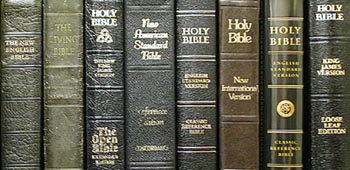I mentioned in my last post the most common question I get from new believers is how to study the Bible (find it here). I usually advise new believers to write down the scriptures their pastor uses in his or her sermon and then read the entire chapter throughout the week to gain context and insight into the sermon.
Eventually, a new believer will no longer be “new” and will need (and hopefully want) to expand his or her reach into the Bible.
That’s when I recommend the S.O.A.P. method. I started using S.O.A.P. after I was given New Hope’s Life Journal , a journal-based study tool that stresses applying the Word of God to our lives, by a friend. The S.O.A.P. method helped me dig deep into understanding the Bible and apply what I was reading to my life which, as you know, makes all the difference. There is no one but the studier and the Holy Spirit.
Supplies:
Notebook or journal
pen or pencil
Bible (preferably one that you understand with little to no help; Part One of this series)
How to use S.O.A.P.
Just like your physical body needs soap to stay clean, you need to use S.O.A.P. to keep your spiritual body clean. To stay free of funky smells, you have to scrub places intentionally. The same goes for your spiritual being; you know the places that need a good scrubbing because your life stinks in those areas.
It is important to have a open and willing mind when using the S.O.A.P. method. Allow the Holy Spirit to speak to you through the scriptures and be brutally honest with yourself with what He is telling you. No excuses. Just honesty.
S – Scripture
1. Pray over your time in the word, asking the Holy Spirit to show you what you need to know. I usually say the same prayer over my Bible reading time as I do my meals: “Father I thank you for this (spiritual) food and bless it to my (spiritual) body. In Jesus name Amen.”
2. Using a reading plan of your choice (one is provided in the New Hope’s Life Journal; otherwise, your Bible may have one or you can find one online by searching “yearly Bible reading plan“), begin reading the portion of scripture, making a note of what jumps out at you.
What makes you stop and say “hmmmm, that’s interesting”?
What did the writer mean by that?
Wow! I never saw that before!
Ouch! That portion of scripture kind hurt.
3. Write it in your journal.
O – Observation
Describe why that particular part of scripture grabbed your attention. What is the Holy Spirit trying to tell you through this scripture? You may want to paraphrase (put into your own words) the scripture.
A – Application
This is where you get down and dirty. You have to be honest with yourself and tell yourself the truth about how you will apply what you learned.
P – Prayer
This is the time where you and the Lord have a conversation concerning what He just revealed to you through Scripture. It can be as simple as asking the Spirit to help you apply the truth to your life today, or as involved as repentance and restoration. One thing that it should always be, according to Pastor Wayne Cordeiro of New Hope Church, is a two-way conversation. Get used to giving time for the Lord to respond to you.
Now you are ready to take your new found knowledge for a test drive. Discover how this faith thing works! You can read about how to play basketball ’til the cows come home. Until you pick up a ball and start bouncing it, you will never truly know how to play basketball. Now get out there and live like a Christian!
The 5-5-5 devotional plan dovetails nicely with the S.O.A.P. 5-5-5 is simply 5 minutes of praise and worship with music, 5 minutes of Bible reading/devotion, and 5 minutes of prayer. Don’t be surprised when this method quickly turns into 10-10-10 and then 20-20-20.
I myself have experienced growth in my knowledge of the Word and my experience with Jesus using the S.O.A.P. method. It is a simple method that is easily tailored to an individual’s needs. It can be used to enhance topical studies as well as word studies.
Try the S.O.A.P. method out and see what you think. I’d love to hear how it has helped you.

